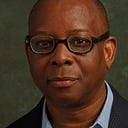Member-only story
Toward the Death of Spiritual Violence in Boston
The curious among us have assuredly asked: what is violence? Is it an obvious thing requiring no deep thinking to define it? Or is it more complex than that — more like an ideology marked by intractable worldviews, group histories, differing perspectives or the source of disparate social and political hierachies?
Some argue that violence is embedded in our DNA. Others contend its a learned behavior. The political philosopher, Reinhold Niebuhr, in his classic text, Moral Man and Immoral Society, has said that the quest humans have for elite status motivates violent propensities, contending also that: “The moral attitudes of dominant and privileged groups are characterized by universal self-deception and hypocrisy.”
The answer to the enduring problem of violence may be that it is not the result of just one cause; it is not the product of a singular foundation.
Violence can — and does — exist in the physical realm. It occurs when inappropriate force is placed upon a person or a thing. This type of violence is often grounded in some form of hatred that is rooted in personal or group dissonance. Rape is a form of violence. So is shooting someone with a gun in the middle of 5th Avenue in New York City. We all denounce violence on our nation’s playgrounds, when the local bully subjects another child to the unprovoked…
